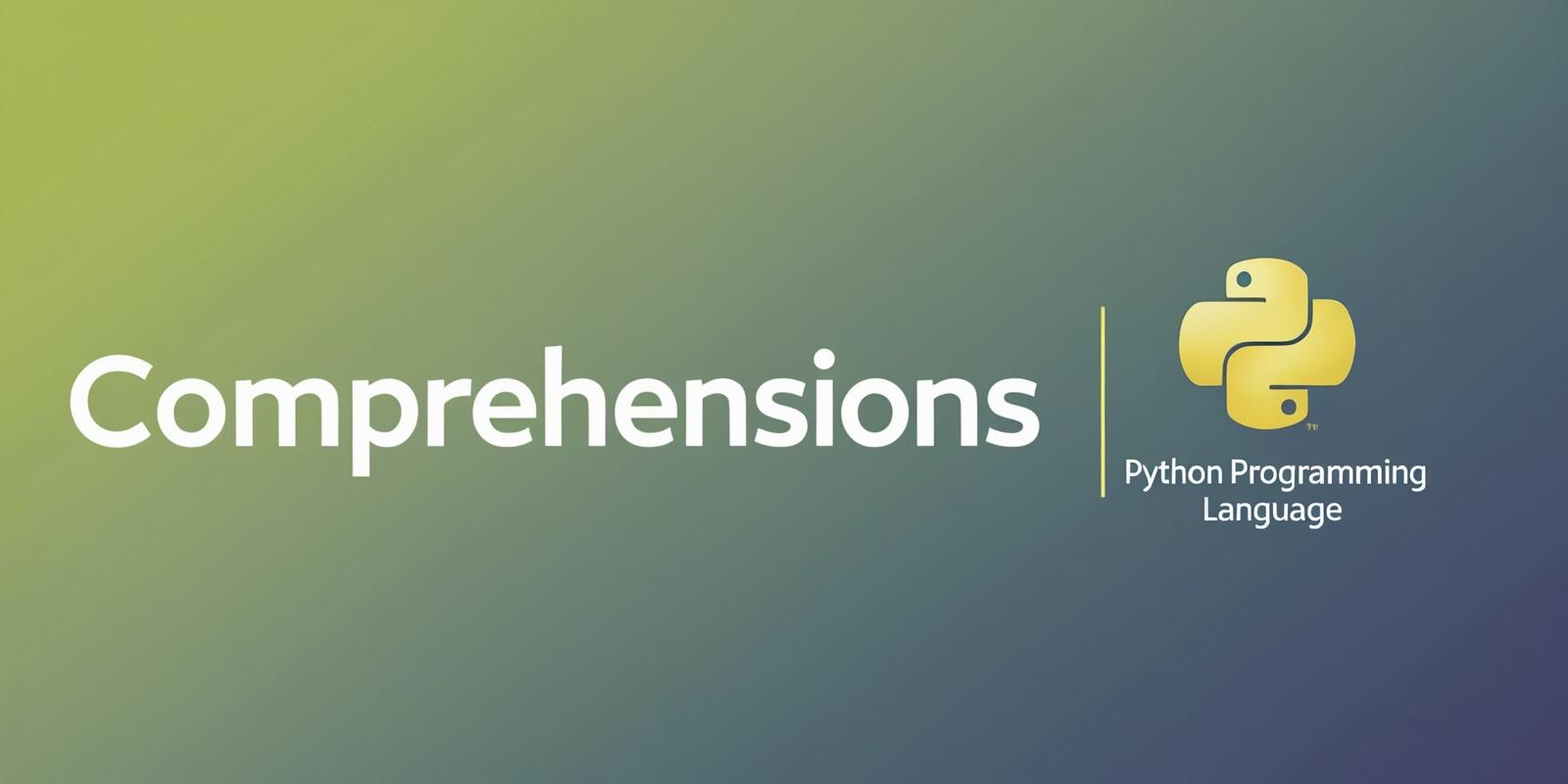Comprehensions are constructs in Python that allow the creation of sequences from other sequences in a concise and expressive way. Python introduced list comprehensions in version 2.0 and later added dictionary comprehensions and set comprehensions in Python 3.0.
List Comprehensions
List comprehensions provide a compact way to transform one list into another by applying a function to each element.
A list comprehension consists of the following components:
- Input Sequence: The source sequence.
- Variable: Represents each item in the input sequence.
- Optional Predicate Expression: A condition to filter elements.
- Output Expression: Generates items for the resulting list from filtered elements of the input sequence.

nums = [2, 4, "4", 3.14, 5]
new = [x * 2 for x in nums if isinstance(x, int)]
print(new) # [4, 8, 10]
a = [1, 2, 3, 4]
b = [i * 2 for i in a]
print(a) #[1, 2, 3, 4]
print(b) #[2, 4, 6, 8]
a = [1, 2, 3, 4, 5, 6, 7, 8]
b = [i * 2 for i in a if i > 5]
print(a) #[1, 2, 3, 4, 5, 6, 7, 8]
print(b) #[12, 14, 16]
x = [x for x in range(0, 10)]
print(x) #[0, 1, 2, 3, 4, 5, 6, 7, 8, 9]
keys = {"a": 1, "b": 2, "c": 3, "d": 4}
x = [f"{a} is {x}" for a, x in keys.items() if x % 2 == 0]
print(x) # ['b is 2', 'd is 4']
Set Comprehensions
Set comprehensions use the same principles as list comprehensions but produce a set as the output.
For example, consider a list of names that may contain duplicates, different capitalization styles, and single-character names. We want only unique names longer than one character, formatted with the first letter capitalized and the rest lowercase.
names = ['Bob', 'JOHN', 'alice', 'bob', 'ALICE', 'J', 'Bob']
new = {name[0].upper() + name[1:].lower() for name in names if len(name) > 1}
print(new) #{'Bob', 'Alice', 'John'}
Dictionary Comprehensions
Dictionary comprehensions are similar to list comprehensions but create a dictionary instead of a list.
a = {x: x for x in range(5)}
print(a) #{0: 0, 1: 1, 2: 2, 3: 3, 4: 4}
k = ["key", "country", "continent"]
c = ["Dublin", "Ireland", "Europe"]
a = {k[x]: c[x] for x in range(len(c))}
print(a) #{'key': 'Dublin', 'country': 'Ireland', 'continent': 'Europe'}
l = {"a": "A", "b": "B"}
x = {key: val for key, val in l.items()}
print(x) #{'a': 'A', 'b': 'B'}









